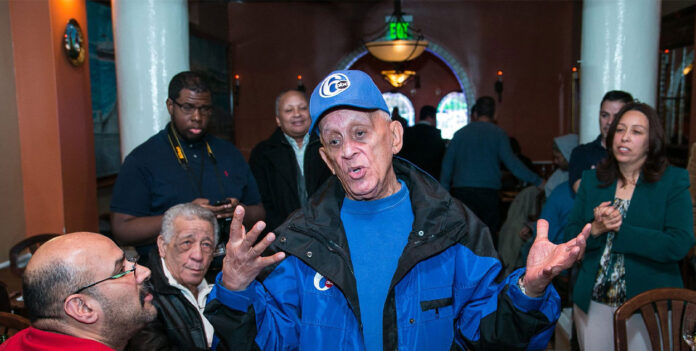
With every breath, history is made, though it is not always written about. The struggles of the Puerto Rican people continue to be fundamental, both on the Island and in U.S. cities. The political, social, and economic conflicts stemming from today’s societal demands have not changed much, and it seems we are repeating history.
In Philadelphia, the Puerto Rican community grew through social and economic struggles, forging a path, a history, and a legacy. Among the most prominent Puerto Ricans in this development is Oscar Rosario-Fuentes.
I have known Oscar since 1972, though his name was familiar to me even before then, often appearing in conversations and in the local Spanish newspapers “El Coquí” and “La Actualidad.” I had seen him at meetings of the Concilio and the Asociación de Puertorriqueños en Marcha (APM).
Oscar is a very helpful man; he was the one who helped me get hired by the State and the City to lead the Hispanic team in the “Concentrated Employment Program.” Over time, I discovered the extent of his influence in our community.
He was born into a Puerto Rican family seeking better economic opportunities in Philadelphia. Oscar talks about his childhood mischief with his siblings, moments of family happiness, and social confrontations. He has always lived in the Fairmount area, which decades ago was the center of the Puerto Rican community. He was educated in Catholic school and graduated from “Bishop Newman” (formerly “South East Catholic”).
Oscar was known for his talent and lightness on the dance floor. He was part of the artistic cast of “American Bandstand,” a famous program televised by channel 6.
The first time he left home was to go to California with one of his brothers. There, while working on farms, he began his informal education in civil rights. He met César Chávez and joined his cause; I believe he was even arrested during a protest.
Upon returning to Philadelphia, he began a new chapter as a presenter and host. Working at “Ted Panama Production,” he gained ground in local radio and television, meeting major personalities in boxing and sports.
His civil interest led him to get involved with the Democratic Party, starting a new political phase in his life. During this time, the first Hispanic office in City Hall was opened under his direction. Additionally, the Democratic administration in the governor’s office opened an office for Hispanic affairs.
The list of Rosario-Fuentes’ achievements is extensive. One of his most notable traits is his adherence to Puerto Rican culture and his affirmation of being Taíno. Undoubtedly, this man is a fundamental part of the history of the Puerto Rican community in the region.





